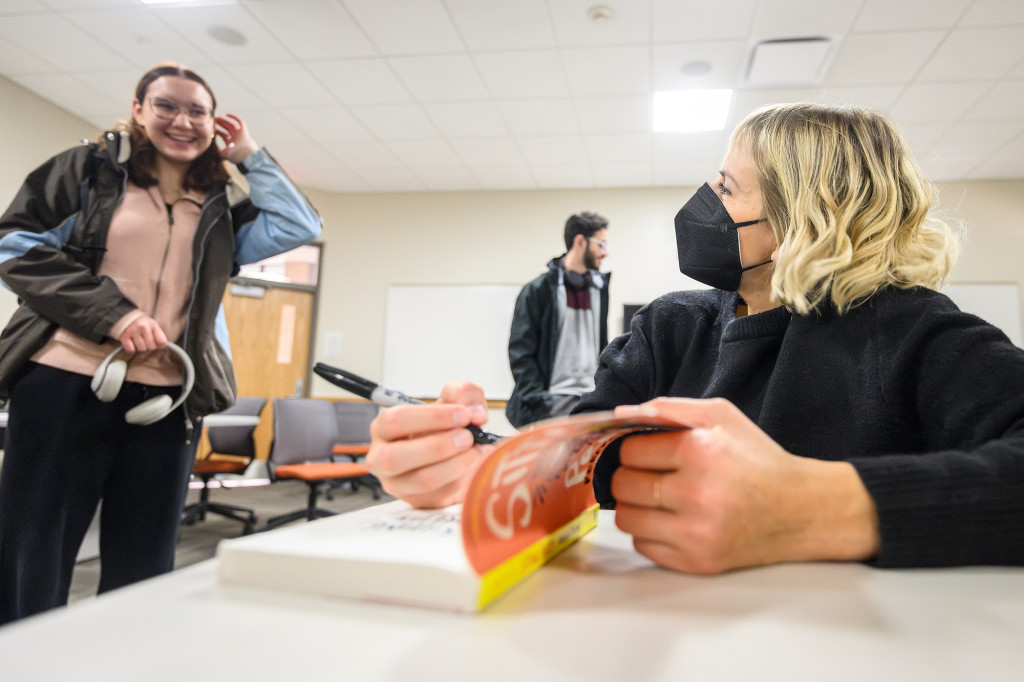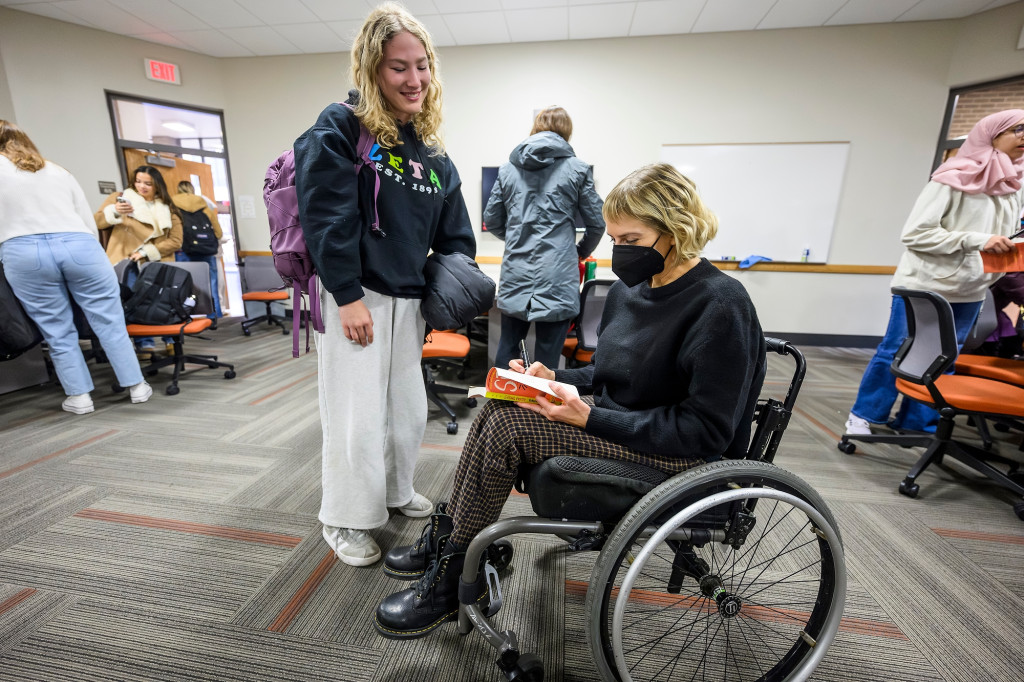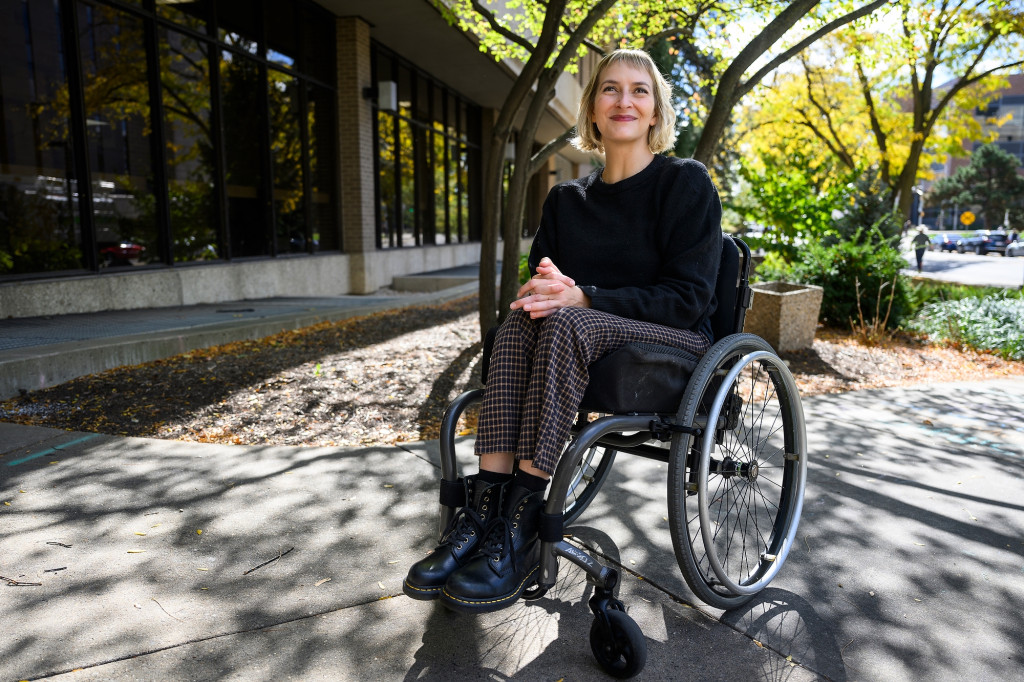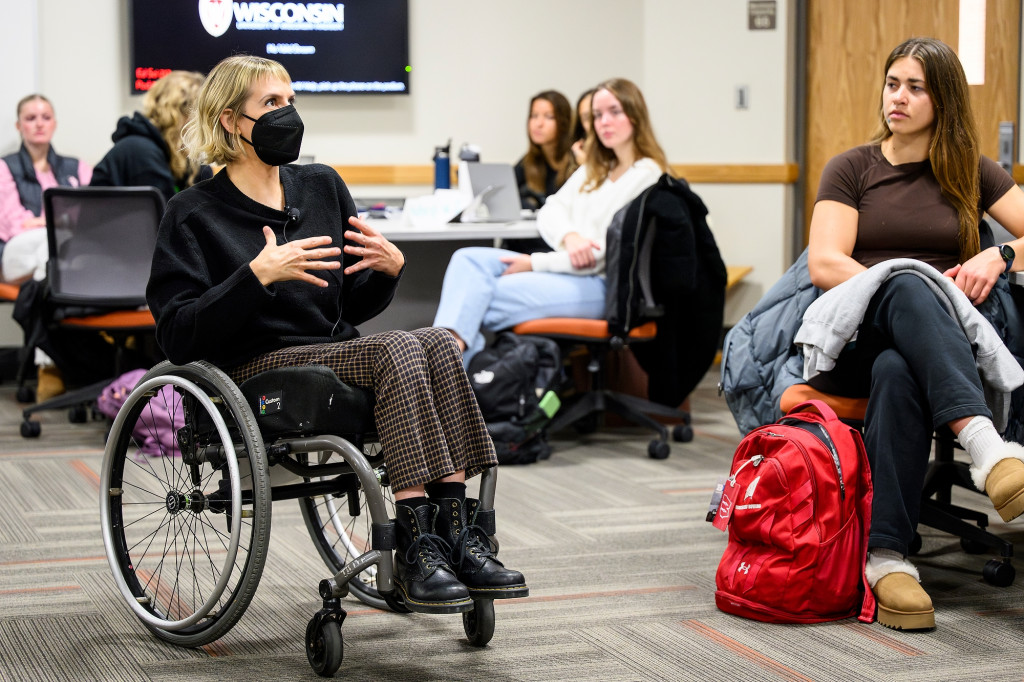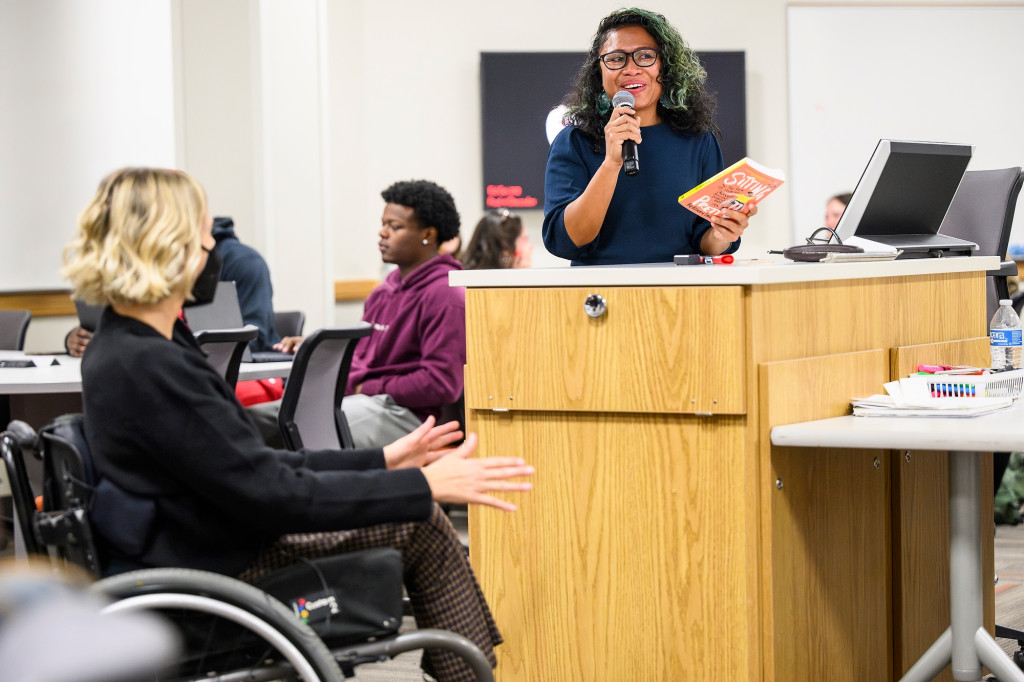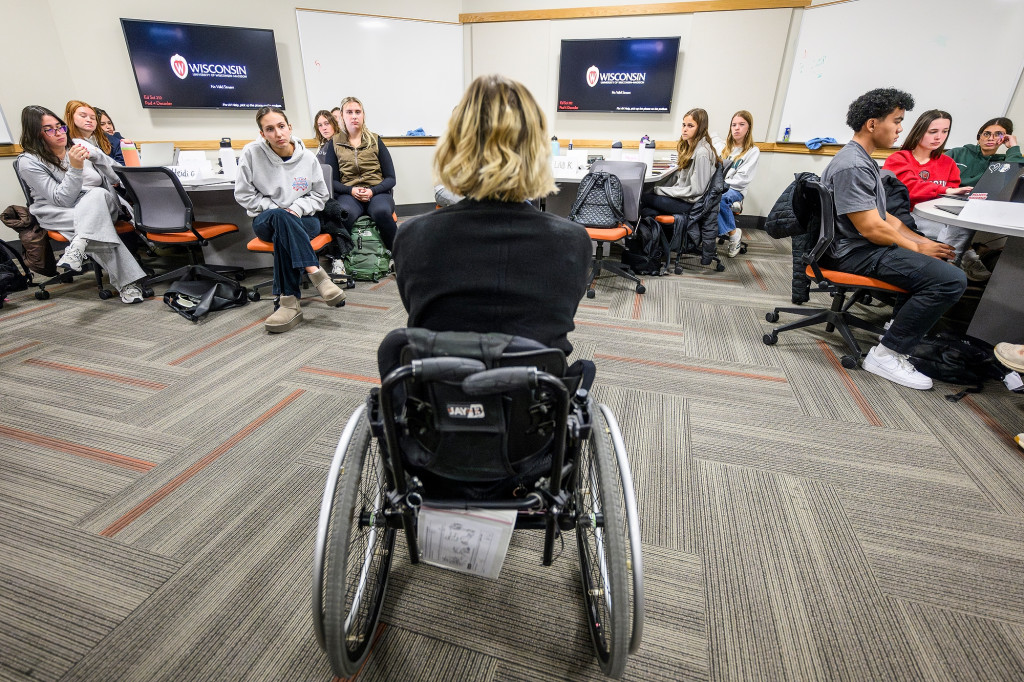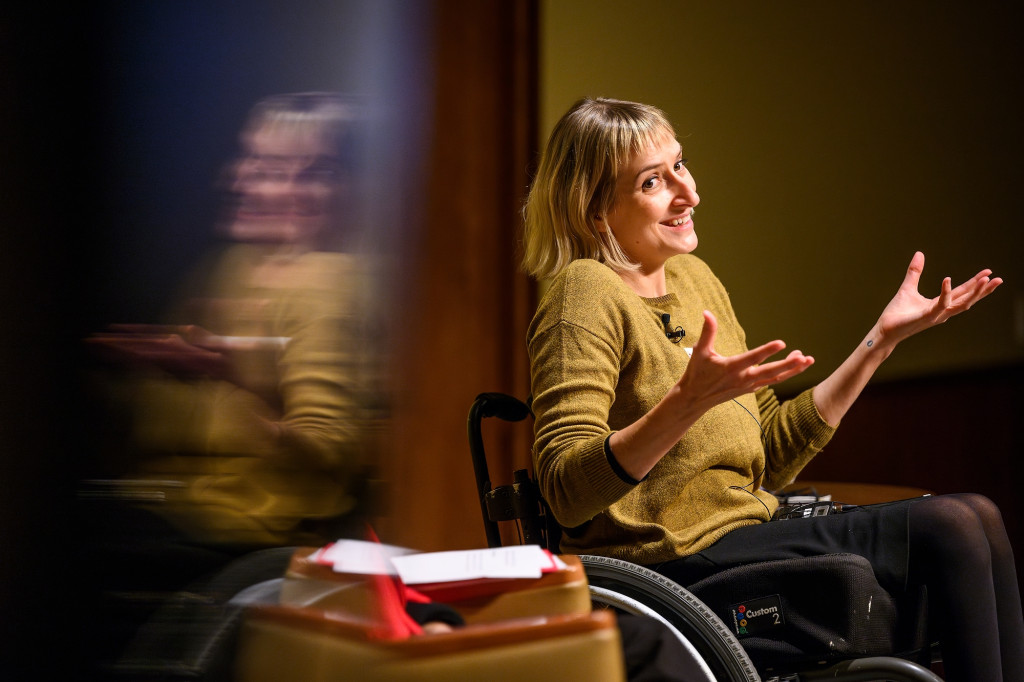
Taussig answers questions from the audience during UW-Madison’s Go Big Read keynote conversation. (Photo by Althea Dotzour)
It was a simple, everyday interaction, but it was significant to Rebekah Taussig.
The author couldn’t reach the paper towels she needed from her wheelchair, and a woman nearby spoke up: “They didn’t put these paper towels where you can reach them. Want me to grab one for you?”
The woman’s framing recognized the flaws of the system instead of the perceived flaws of Taussig.
“I felt like someone had taken a beat and assessed the situation more fully than maybe I usually experience,” said Taussig.
On Wednesday night, in a conversation with UW–Madison Chancellor Jennifer L. Mnookin, Taussig discussed ways of living with disability, displaying kindness and fostering independence at the Go Big Read keynote at Union South, attended by students, staff and campus community members.
Taussig’s book, “Sitting Pretty: The View from My Ordinary Resilient Disabled Body,” was chosen by Chancellor Mnookin as the 2024-2025 Go Big Read book, for UW–Madison’s community reading program. A series of panels, book discussions and other events are being held to discuss the book throughout the fall semester.
Paralyzed from the age of three, Taussig grew up longing for stories that allowed disability to be complex and ordinary; too often it was portrayed as monstrous or inspirational.
Taussig stressed the need to listen and wait before jumping to conclusions about a person’s disability.
“Disability is a great example or framework for moving away from this idea of assumption,” Taussig said. “Of what we assume that we know what somebody needs, what’s helpful to someone, assuming that we know what they don’t need and what they’re capable of doing, and our expectations of them and what their home life is like and what their resources are.”
People should advocate for themselves in situations where they don’t feel adequately represented, Taussig said. She recalled once when she failed to do so, but then she saw a little girl in a wheelchair in the same space.
“That moment, for me, completely shifted the way that I think about self-advocacy, that self-advocacy is always advocacy for each other, that it’s not just about us, it’s about all of us,” Taussig said. “When we advocate for ourselves, not only are we making that space more accessible for the people coming after us, but I think that people around us feel more freed up to say, ‘This isn’t working for me,’ or ‘I had this need.’”
Author visited classroom
Earlier in the week, Taussig visited a class called Disability and Society, taught by Dian Mawene. Many of the students in the class are working toward a Disability Rights Certificate in the Department of Rehabilitation Psychology and Special Education in the School of Education.
She told the class that a goal should be to make the experience of disability human.
“I feel like so often the way that it was handled when I was younger, it made me feel more like a spectacle or more different,” she told the students. “And so that line of wanting to talk about it and wanting to address it, but without being intimidating, without creating a further distance, is tricky.”
Thinking about access doesn’t necessarily have to be the image of the blue icon wheelchair that is on the accessible bathroom stalls, she said.
“In a lot of ways, it’s a conversation about how can we make the world more hospitable and easily accessible to all of the bodies that we live in,” Taussig said. “And all of the bodies we live in are constantly changing through injury, illness, pregnancy, potentially, and age.”
Taussig finished her time with the class saying, “This work is important. This matters a lot. I want to remind you of that in the midst of the chaos and slog of it, it’s beautiful what you’re doing.”
Written by Sophia Ross
Link to original story: https://news.wisc.edu/go-big-read-author-reflects-on-disability-kindness-independence/

